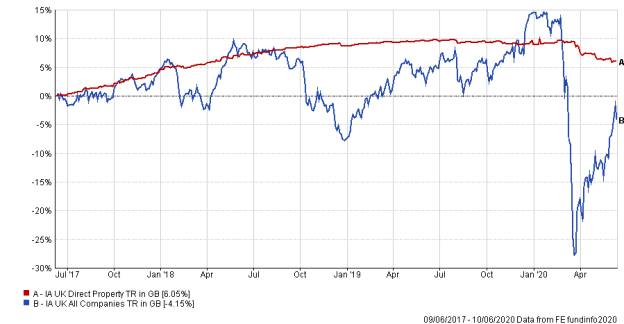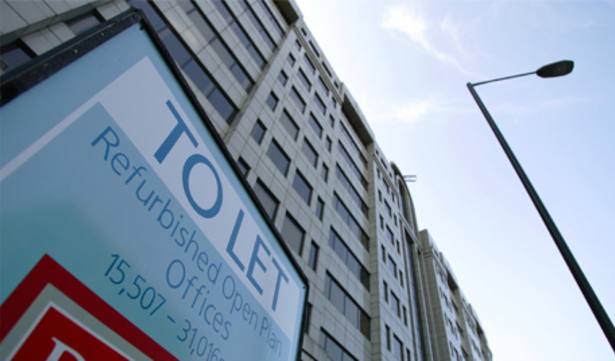
Recessions typically lead to investors sharply revising their expectations for the property market.
As the most economically sensitive of asset classes, property tends to rise steeply as economic growth becomes entrenched, only to crash when the tide turns.
In the UK, over the past decade, the policies of record low interest rates and quantitative easing have boosted much of the UK’s property market, even without a concordant increase in economic growth.
The pandemic has shattered the fragile GDP growth being eked out in the UK.
Remote working
But in addition to the usual jerk downwards in property valuations as a result of the decline in economic activity, there is the added complication of the present necessity of remote working to potentially become a permanent part of the culture, hurting long-term demand for commercial property.
This will also affect residential property as workers consider where they want to live, in a working-from-home world.
Those uncertainties are compounded by the continuation and expansion of central bank policies which have in the past caused property prices to rise regardless of economic conditions, and the advent of rent and mortgage holidays for businesses.
The effect of these may be to prevent the usual cycle of evictions and repossessions that pockmark an economic downturn.
Paul Derrien, investment director at Canaccord Genuity Wealth Management says: “Usually an economic decline is a great opportunity to include property, as the asset class benefits from the recovery and adds some diversification from equities.
"The future, however, is unclear. The new normal may see lower demand for office space, retail space, even hospitality space in the short term, and all of this will provide a headwind at the very least for this asset class.
"Add in that many properties are owned with debt, and it could pay to be patient. The pandemic may even be a thing of the past when the greatest opportunity presents itself.”
He added that investors considering allocating to property should be aware that the performance of the asset class tends to be relatively closely correlated to equities, and so an adviser considering allocating to property should consider whether those assets offer sufficient diversification.
Richard Shepherd Cross, managing director of Custodian Capital, the fund management arm of Mattioli Woods says: “After the pandemic, while many things may have changed, it is likely that the correlation between property investment and equities and bonds is likely to return to normal.
"That is to say, property will again be lowly or negatively correlated with equities and bonds. Low, or better still negative, correlations between assets in a balanced portfolio will reduce portfolio risk and volatility.”
Impact on property sectors







